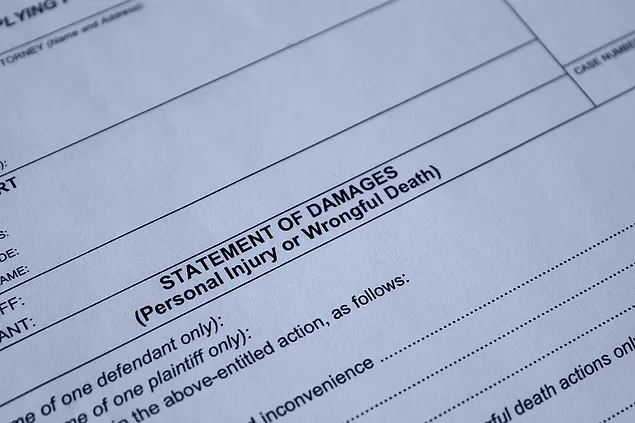If a loved one has recently passed away as a result of injuries or an accident that was no fault of their own, you may have the ability to pursue damages in the form of a wrongful death claim. In this blog, we’ll answer a few of the most common questions we receive about this particular type of claim to help you better understand what your options may be.

DO I HAVE A WRONGFUL DEATH CLAIM?
Obviously, the answer to this question is going to depend on the specific circumstances that caused the death in question. However, generally, if the death was caused by someone else’s fault, then yes you have a claim.
Everything from catastrophic workplace accidents to toxic exposure cases to even regular car accidents that result in someone’s death can possibly create wrongful death liability. As with personal injury cases, it all comes down to the question of whether or not someone with a duty of care acted negligently, and showing that the negligence directly resulted in someone’s death.
CAN I SUE FOR WRONGFUL DEATH?
That depends on who you are in your relationship with the deceased. Generally, those who are immediately impacted by the death (known as “real parties in interest”) can file these claims, and nobody else. Here are some people who are generally legally entitled to file a wrongful death claim on behalf of the deceased or their estate:
- Widow/widower: The legal spouse of someone killed in a wrongful death suit may pursue one of these claims
- Children: Any of the spouse’s children who they have legal paternity rights over, including adopted children, may file a claim
- Parents: If the deceased was dependent on their parents at the time of their death, parents can file a wrongful death claim on their behalf
- Financial dependents: Those who depended on the deceased for financial support, including parents, siblings, or even partners and roommates may be eligible to file for one of these claims (though you should review with an attorney before filing, just to be safe)
WHAT DAMAGES CAN I RECOVER?
Tennessee law allows you to recover benefits for damages the deceased has suffered as well as damages suffered by those who are impacted by their death. In a Tennessee wrongful death case, someone may file a claim for:
- Reasonable funeral and burial expenses
- Lost income from any period of incapacity between the injury or illness and death
- Loss of enjoyment of life
- Mental anguish the deceased suffered before their passing as a result of the injury or illness
- Lost wages the deceased likely would have earned had they lived
- Physical and mental suffering, lost time, and necessary expenses incurred by the surviving family members or next of kin
- Loss of companionship
CAN MY CHILD RECOVER BENEFITS ON MY BEHALF?
You must be over 18 to file a wrongful death lawsuit, so these suits must be filed by a trusted member of the estate. Any benefits recovered by one of these suits must be placed into a trust for the next of kin, which will benefit them once they reach the age of either 18 or 21. Don’t let this discourage your estate from pursuing wrongful death damages as a result; these trusts can often dramatically improve a young child’s life later on.
HOW LONG DO I HAVE TO FILE A CLAIM?
Like all personal injury or civil law matters, you’re bound by a “statute of limitations,” or a legal time limit by which you have to file your claim. For wrongful death cases in Tennessee, you generally have up to one year to file your claim, starting on the date of the deceased’s passing. If your claim isn’t filed by this time, the court will likely refuse to hear your case and you’ll lose out on the opportunity to pursue the compensation that you deserve.
If a loved one has recently passed away through no fault of their own, review whether or not you qualify for a wrongful death claim by calling The Clarke Law Firm today at (615) 796-6299! Let our Murfreesboro wrongful death attorney help you with your case.



